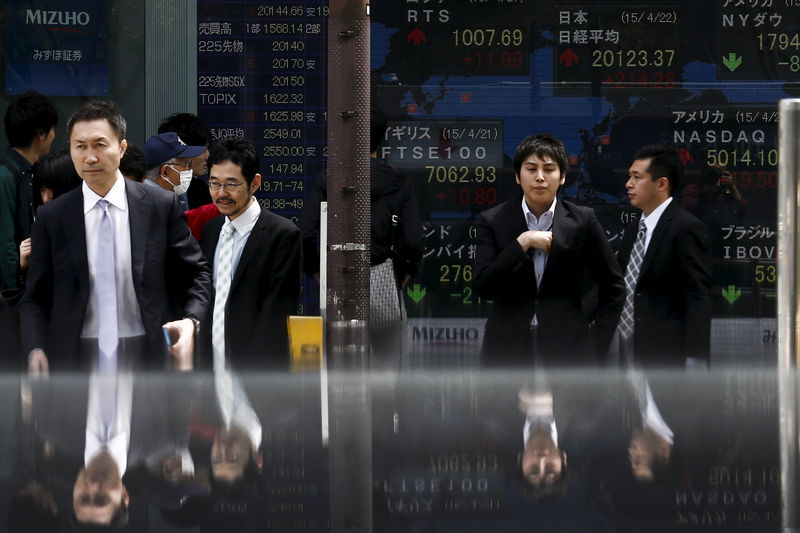Gold prices set for weekly gains on dovish Fed outlook; silver near record high
By Lisa Twaronite
TOKYO (Reuters) - Asian shares rose on Friday, on track for a solid weekly gain, as investors awaited more U.S. data later in the session for clues on the timing of the U.S. Federal Reserve's interest rate hike.
Financial spreadbetters predicted a steady but lacklustre start to European trade, with Britain's FTSE 100 (FTSE) seen opening between 1 point higher and 4 points lower, or flat in percentage terms.
Germany's DAX (GDAXI) was expected to open up between 5-10 points, or 0.1 percent, while France's CAC 40 (FCHI) was seen opening flat.
MSCI's broadest index of Asia-Pacific shares outside Japan (MIAPJ0000PUS) was up 0.7 percent, poised to gain about 1.3 percent for the week. Japan's Nikkei stock index (N225) added 0.8 percent, marking a 1.8 percent weekly rise.
China stocks slumped after Xiao Gang, chairman of the China Securities Regulatory Commission, said that the watchdog's recent move to accelerate approvals for initial public offerings won't have a big impact on the market - which some interpreted as a signal IPO activity could be stepped up further.
The CSI300 index (CSI300) fell 1.2 percent while the Shanghai Composite Index (SSEC) lost 1.1 percent, but both were on track for robust weekly gains.
On Wall Street, all three major indexes gained more than 1 percent, and the S&P 500 (SPX) closed at a record after U.S. economic data painted an improving employment picture, but subdued producer price inflation quashed bets that the U.S. central bank would raise interest rates sooner rather than later this year.
"If we get a 'wait and see' approach in June, which seems likely at the moment, then the earliest the Fed can act in revising its forecasts upwards would be September, and it would be unusual to do that, and act on rates at the same meeting, which means the earliest we could get a move on rates now is either October, or December," Michael Hewson, chief market analyst at CMC Markets, said in a note.
Friday's slated U.S. releases include industrial production for April and the University of Michigan's preliminary May reading on consumer sentiment. [ECONUS]
The dollar was treading water, trying to stay afloat after sinking to a nearly four-month low on Thursday against a basket of rival currencies.
The dollar index (DXY) edged down 0.1 percent to 93.547. It fell as low as 93.133 on Thursday, its lowest since late January, pressured by a resurgent euro, which scaled a nearly three-month peak of $1.1445
The dollar was buying 119.53 Japanese yen
Spot gold
It was down about 0.2 percent on the day at $1,217.90 an ounce but was on track for a weekly rise of more than 2 percent.
"Gold's break over the technical 200-day moving average of $1,218 triggered further buying from momentum investors," said HSBC analyst James Steel.
Crude oil futures edged down but were set to end the week slightly higher, buoyed by the weaker dollar, forecasts of lower U.S. crude output, and a pick-up in global demand.
U.S. crude
Front-month Brent
